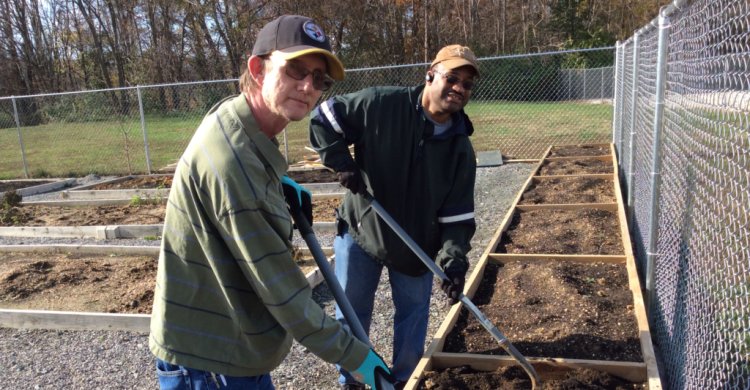Knowledge of Traumatic Brain Injury: Origins, Signs, and Therapies
We'll talk about traumatic brain injury, brain injury support for veterans, how to donate to veterans who have suffered brain injuries, and other relevant subjects in this post.
Share this Post to earn Money ( Upto ₹100 per 1000 Views )

Introduction: Understanding Traumatic Brain Injury (TBI) in Veterans
- Traumatic Brain Injury (TBI): Traumatic Brain Injury is a severe medical condition resulting from a sudden trauma to the head.
- Common causes: Blasts, falls, and combat injuries among veterans.
- Veterans are at higher risk due to exposure to combat zones, training exercises, and explosions.
- Mild to severe TBIs can have lasting effects on quality of life.
- Symptoms may appear immediately or take time to develop.
Types of Brain Injuries Common Among Veterans
Mild TBI (Concussions)
- Temporary confusion, headaches, memory problems.
- Most recover, but some experience persistent post-concussive symptoms.
Moderate to Severe TBI
- It can result in loss of consciousness for extended periods.
- Potential for significant cognitive and physical impairments.
- Difficulty with attention, memory, language, and problem-solving.
Challenges Veterans Face After a Brain Injury
- Veterans may find communication difficult, which can make it difficult for them to explain themselves or comprehend others.
- Personality or behavior changes can cause tension in relationships with family and friends.
- Due to their injuries, many veterans have trouble returning to work or obtaining new employment.
- Veterans frequently struggle with the stigma associated with brain injuries, which may discourage them from getting care.
- If their damage is "invisible" to people around them, they might feel alone or cut off from society.
- It may be difficult for a veteran to get the proper medical attention and rehabilitation, mainly if they are unaware of the available services.
- Co-occurring disorders such as PTSD can impede healing and increase treatment challenges.
The Importance of Support for Veterans with Brain Injuries
Brain Injury Support For Veterans includes the following:
- Veterans with TBIs need ongoing support to cope with the complex impacts of brain injuries.
- Without proper intervention, veterans may face challenges such as homelessness, unemployment, and substance abuse.
- Mental health services are critical to address both the psychological effects of TBI and co-occurring conditions like PTSD.
- Access to rehabilitative care can improve long-term recovery outcomes.
- Specialized care often includes occupational therapy, physical therapy, speech therapy, and cognitive rehabilitation.
- Family support is essential, as caregivers also need resources to manage the challenges that come with caring for a veteran with TBI.
Brain Injury Support for Veterans: Essential Services
Medical Rehabilitation Services
- Comprehensive medical care from neurologists, therapists, and neuropsychologists.
- Physical therapy to regain motor skills and mobility.
- Speech therapy for communication challenges caused by injury.
- Cognitive rehabilitation therapy to improve memory, attention, and executive functioning.
Mental Health and Counseling Services
- Individual and group counseling for veterans coping with depression, anxiety, and PTSD.
- Trauma-informed care that addresses the psychological effects of combat-related injuries.
- Support for family members who are often crucial caregivers.
Vocational Rehabilitation and Employment Support
- Helps veterans return to work or find new employment opportunities.
- Job coaching, resume building, and skills training for veterans adjusting to new cognitive abilities.
- Access to disability accommodations in the workplace to ensure veterans can perform effectively.
Peer Support Networks
- Peer mentors and veteran support groups provide a sense of camaraderie and understanding.
- Veterans share their experiences and provide emotional support to each other.
- Helps reduce isolation and improves motivation for recovery.
Housing and Financial Assistance
- Veterans with TBI often face financial instability due to the inability to work.
- Temporary housing assistance, grants, and financial planning resources can help veterans manage their finances.
Education and Awareness Programs
- Educating veterans and their families about TBI symptoms, treatment options, and available resources.
How Donating to Veterans with Brain Injuries Makes an Impact
- Donate To Veterans With a Brain Injury helps provide veterans with critical resources for treatment, rehabilitation, and long-term care.
Funds go toward:
- Specialized care and rehabilitation programs.
- Mental health services focused on TBI recovery and co-occurring conditions like PTSD.
- Family support programs that offer counseling, education, and respite care for caregivers.
- Research into new treatments and interventions for TBIs in veterans.
- Housing assistance for veterans with disabilities.
- Veterans Affairs (VA) and other nonprofit groups often rely on donations to improve the quality of care.
- Donating helps veterans access services they might otherwise be unable to afford, leading to improved recovery outcomes.
How You Can Donate and Support Veterans with Brain Injuries
- Financial Donations: Directly support rehabilitation, housing, and mental health services.
- Volunteer Your Time: Assist veterans by participating in community outreach or helping with daily tasks.
- Fundraise: Organize local events, such as walks, runs, or charity auctions, to raise awareness and funds.
- Advocate for Policy Changes: Support policies that improve healthcare access and benefits for veterans with TBIs.
- Many organizations allow you to donate directly on their websites or through monthly giving programs.
How Donations Have Helped Veterans with TBI
- Necessary medical treatment and rehabilitation initiatives for veterans with brain injuries have been made possible by donations.
- They have contributed to providing mental health services, such as therapy and counseling, to aid in emotional healing.
- Contributions have made research into more effective cures and treatments for traumatic brain injuries possible.
- Donations have helped fund job training initiatives, enabling injured veterans to reenter the workforce.
- They have given veterans with financial difficulties meeting their necessities and housing support.
- Donor-funded adaptive equipment, such as mobility aids, has been given to veterans to help them live better everyday lives.
- Programs for caregiver assistance have helped family members provide TBI-affected veterans with care.
- Donations have made peer support groups possible, where veterans may interact with others going through similar struggles.
- They have backed the construction of specialist facilities for rehabilitating and treating TBIs.
- Donor-funded public awareness efforts have helped to lessen the stigma associated with brain injuries, which has encouraged more veterans to get care.
FAQs related to Traumatic Brain Injury:
What are the common causes of TBI?
TBIs often result from falls, vehicle accidents, sports injuries, or military combat exposure.
What are the symptoms of TBI?
Symptoms include headaches, confusion, dizziness, memory problems, and mood changes.
Can TBI be mild or severe?
Yes, TBIs range from mild (concussion) to severe, depending on the impact and damage to the brain.
How is TBI diagnosed?
TBI is diagnosed through physical exams, imaging tests like CT or MRI scans, and cognitive assessments.
How is TBI treated?
Treatment includes rest, rehabilitation, therapy, and sometimes surgery for severe cases.
Can a person recover fully from TBI?
Recovery varies; mild TBIs may heal fully, while severe injuries can result in long-term effects.

 latestfeeds
latestfeeds 














